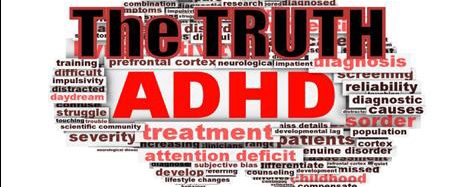As an adult, still suffering from the symptoms of ADHD, I have hypothesized that my dependence on nicotine and tobacco could possibly be linked to my diagnosis. Despite numerous (or more accurately, few) attempts to quit, alongside my husband’s constant tirades imploring me to abstain from smoking, I seem to persist as part of the minority within the current millennial trend to boycott Big Tobacco. My recent research, however, has enlightened my understanding of, though still not serving as an excuse for, my obstinate continuation of this unhealthy habit.
As it turns out, nicotine dependence has been strongly correlated to the ADHD community. Additionally, Conduct Disorder (such as Oppositional Defiance Disorder), in its coexistence with ADHD, has also been shown to increase incidences of chronic tobacco use. Many times, those with ADHD can’t seem to find the will to quit, as compared with the general population.
This interrelation then breeds the question…Does smoking somehow produce more rewarding feedback to the brains of those with ADHD? Recent research has found that nicotine, in fact, does reap psychosomatic benefits on those who suffer from ADHD.
Taking a closer look at what nicotine brings to the table, it is evident that the drug:
- Heightens concentration,
- Improves memory,
- Begets stimulation and alertness and
- Reduces anxiety
Many of these gains, as you may recall from previous blogs, work to counter the core ADHD Symptoms (i.e. inattention, Hyperactivity and Impulsivity). Hence, it has been posited that those with ADHD, take on the habit as a means to self medicate, using smoking to treat the angst and distraction accompanying ADHD.
Further, adding weight to the former hypothesis, lays the fact that ADHD is frequently treated with Psychomotor Stimulants, such as Adderall, Ritalin etc., And, strangely enough, nicotine is another such drug in this stimulant categorization.
In order to find a solution to the conundrum of substance use and ADHD, a vast array of studies have tried to assess whether the risk of drug dependence is mitigated by Psycho-stimulants. Although more research is needed to support this theory, many believe that through moderate and clinical use of Psycho-stimulants to ADHD patients, the risk of substance use (in this case nicotine) may be decreased.
However, the accuracy of these studies must be weighed against the interests of the financial backers of the Academic journals in which the studies are published. As it seems currently, most psychiatric research is funded by the Pharmaceutical Industry, most of whom, find it in their best interests to highlight any minute possibility that Psycho-stimulants prevent substance use disorders, or otherwise have benefits that outweigh their risks.
Until, a non-biased consensus is reached, it is important to realize that smoking does, in fact, null the symptoms of ADHD, thereby adding to its addictiveness for those suffering from the disorder. Equipped with this knowledge, however, we can pursue other forms of enhancing our memory, concentration and impulsivity. Using healthier approaches, such as exercise, meditation and other useful coping strategies we can find more holistic mechanisms to cope with our deficiencies.


I’ve been surfing on-line greater than 3 hours today, but I never found any attention-grabbing article like yours. It’s beautiful value enough for me. Personally, if all web owners and bloggers made good content material as you probably did, the web can be much more helpful than ever before.
I conceive this website has got some real wonderful information for everyone :D. “Years wrinkle the skin, but to give up enthusiasm wrinkles the soul.” by Samuel Ullman.